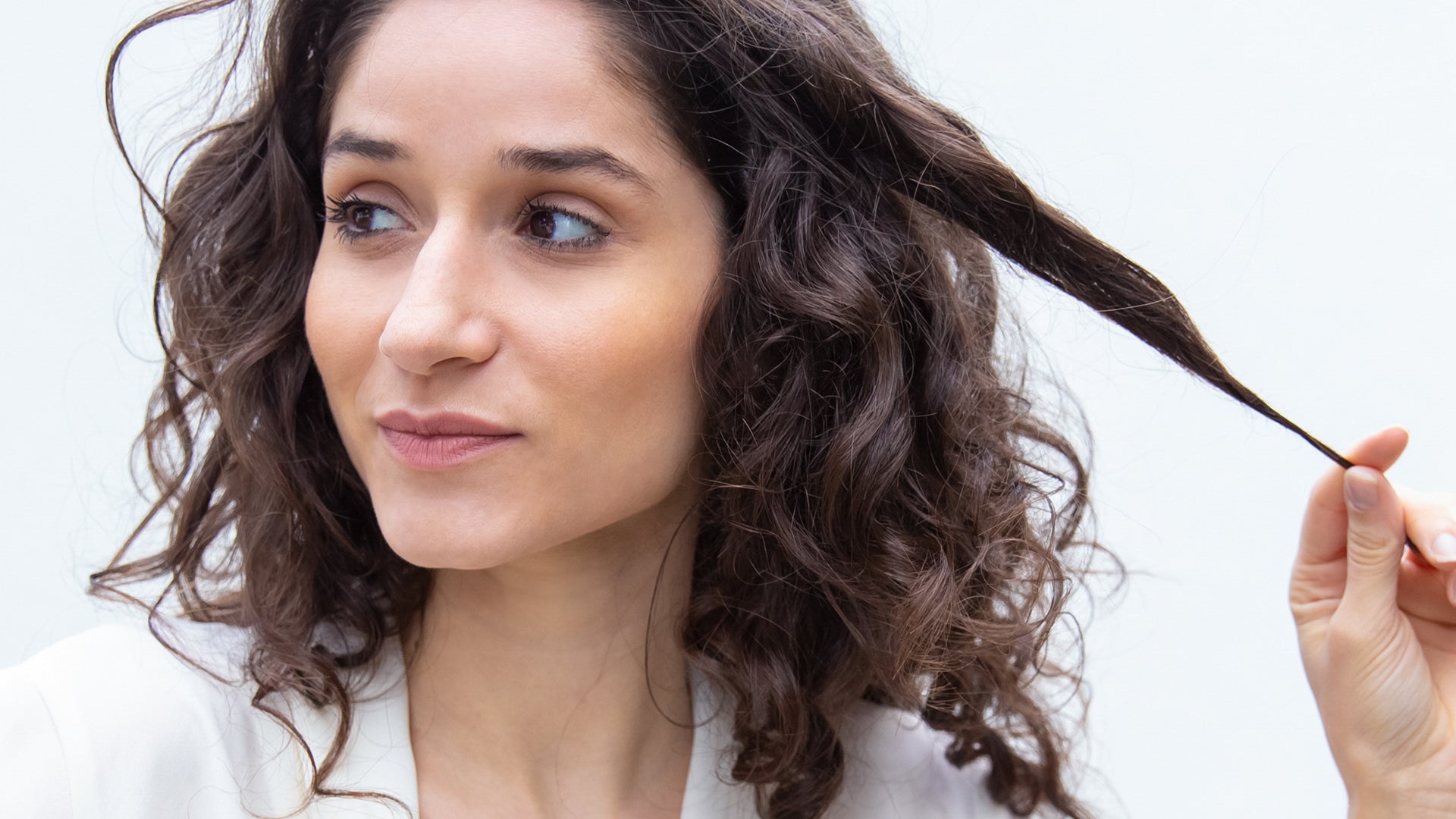Hair health often reflects what’s happening inside our bodies. As we go through life, the changes we experience, from nutritional, hormonal, to even environmental, can start to show up in the strands we see in the mirror. While hair thinning is a natural part of ageing for many people, there’s growing evidence that the right nutrients can make a meaningful difference.
Let's explore the essential vitamins that support hair growth and thickness and how a targeted formulation can help, especially as our needs change with age.
Role of Nutrition in Hair Health 
Our hair is made up of a protein called keratin, produced in hair follicles just beneath the scalp's surface. These follicles are remarkably active and depend on a steady supply of nutrients to function optimally. When the body is short on specific vitamins or minerals, whether due to dietary gaps or changing internal demands, hair can be one of the first places this shows largely due to the complex process of hair growth that relies on these nutrients.
This doesn't mean a deficiency is always to blame for hair thinning. But when the body lacks the right nutritional support, it may struggle to maintain hair growth and quality at its best. That's where certain vitamins come in.
Best Vitamins For Hair Growth and Thickness

Vitamin D
This vitamin activates hair follicles and helps them cycle into the growth (anagen) phase. Low vitamin D levels have been linked to various forms of hair thinning, especially in women.
Vitamin E
An antioxidant that helps reduce oxidative stress - a major contributor to hair follicle ageing. Vitamin E may support hair density and shine by protecting cell membranes from damage.
Vitamin A
This vitamin supports cell growth throughout the body, including the cells that make up hair. It also helps the scalp produce sebum, which keeps hair moisturised and protected. However, balance is key. Too little and too much vitamin A can affect hair quality.
Biotin (Vitamin B7)
Biotin is a water-soluble B-vitamin that helps produce keratin. It is known for maintaining healthy skin, nails, and hair. It supports hair strength and thickness, especially when intake is below optimal.
B-Complex Vitamins
Beyond biotin, the full range of B vitamins (B1, B2, B3, B5, B6, B9, B12) plays a supportive role in energy metabolism, red blood cell production, and oxygen transport, which are all crucial for nourishing hair follicles from within.
Hair and Age: What Changes and Why

It's completely natural for hair to evolve over time. Many people begin to notice changes in their 30s and 40s. These can include slower hair growth, thinning around the crown or temples, and an overall reduction in hair density. But why does this happen?
Several interrelated factors are at play:
-
Reduced Nutrient Absorption: As we age, the body may become less efficient at absorbing nutrients, even when our diet stays the same. This can gradually affect the availability of hair-supporting vitamins and minerals.
-
Hormonal Shifts: Hormones like estrogen, testosterone, and DHT (a derivative of testosterone) influence the hair growth cycle. As hormone levels shift with age, particularly around menopause in women and andropause in men, hair follicles can respond by shrinking or becoming less active.
-
Oxidative Stress: Over time, the accumulation of oxidative stress can impact the health of hair follicles. This stress, caused by free radicals, may speed up hair ageing and reduce the strength and thickness of new strands.
-
Environmental Exposure: Years of sun exposure, styling, and pollution damage the scalp and hair shaft, contributing to dryness, brittleness, and thinning.
These changes mean that even a healthy head of hair in one's 20s can look quite different a few decades later. However, nutrition can be a powerful support tool, especially when it targets these age-related shifts directly.
A Nutritional Support System 
A well-balanced diet rich in whole foods is the ideal foundation. Supplementing key nutrients can be helpful for those looking to support their hair more specifically, especially with age.
The best supplements for hair growth and thickness are the ones that are nutrient-rich and evidence-based. Products like Nutrova Kerastrength are thoughtfully formulated to meet the evolving needs, focusing on what science says, not trends and certainly not fear.
References
-
Biotin and Hair Health
Patel, D. P., Swink, S. M., & Castelo-Soccio, L. (2017). A Review of the Use of Biotin for Hair Loss. Skin Appendage Disorders, 3(3), 166–169.
https://doi.org/10.1159/000462981 -
Vitamin D and Hair Loss
Gerkowicz, A., Chyl-Surdacka, K., Szepietowski, J. C., & Rybak-D’Obyrn, A. (2017). The role of vitamin D in non-scarring alopecia. International Journal of Dermatology, 56(9), 1013–1020. https://doi.org/10.1111/ijd.13788 -
Vitamin E and Hair Growth
Beoy, L. A., Woei, W. J., & Hay, Y. K. (2010). Effects of tocotrienol supplementation on hair growth in human volunteers. Tropical Life Sciences Research, 21(2), 91–99.
https://www.ncbi.nlm.nih.gov/pmc/articles/PMC3819075/ -
Vitamin A and Hair Health
Almohanna, H. M., Ahmed, A. A., Tsatalis, J. P., & Tosti, A. (2019). The Role of Vitamins and Minerals in Hair Loss: A Review. Dermatology and Therapy, 9(1), 51–70.
https://doi.org/10.1007/s13555-018-0278-6 -
B-Complex Vitamins and Hair Physiology
Rushton, D. H. (2002). Nutritional factors and hair loss. Clinical and Experimental Dermatology, 27(5), 396–404.
https://doi.org/10.1046/j.1365-2230.2002.01004.x -
Age-Related Hair Changes and Nutrition
Trueb, R. M. (2009). Oxidative stress in ageing of hair. International Journal of Trichology, 1(1), 6–14.
https://doi.org/10.4103/0974-7753.51921 - Nutrient Absorption and Aging Allen, L. H. (2009). Causes of vitamin B12 and folate deficiency. Food and Nutrition Bulletin, 29(2_suppl1), S20–S34. https://doi.org/10.1177/15648265080292s104



